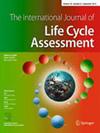Extending the product-group-specific approach in nutritional life cycle assessment
IF 5.4
3区 环境科学与生态学
Q2 ENGINEERING, ENVIRONMENTAL
引用次数: 0
Abstract
Abstract Purpose Recent methodological developments have integrated nutritional aspects into life cycle assessment (LCA) by using nutrient indices as functional units (nFUs). Previous developments have focused on protein-rich foods, but environmental impacts and nutritional composition vary across products in other product groups, highlighting the need to develop nFUs also for other product groups. Here, we present product-group-specific nFUs for vegetables, fruit and berries, and sources of carbohydrates as an extension to our previous study on protein sources. Methods We first justified the basis of product grouping and the procedure to develop product-group-specific nutrient indices to be used as the nFU in the LCA for product groups of vegetables, fruit and berries, and sources of carbohydrates. The practical application of these indices was then tested through demonstrative LCAs for the selection of different foods. The performance and results obtained with product-group-specific nFUs, including previously developed nFU for protein sources, were evaluated through a comparison with an assessment done using a general index, which included all the nutrients with the recommended daily intake in Finnish nutrition recommendations. Results and discussion The results showed that the product-group-specific nFUs resulted in index scores that were an average of 2.5 times higher, and therefore lower climate impacts per nFU for the assessed food products, than the general index. This demonstrated that product-group-specific nFUs accurately represented the relevant nutrients for the studied product group and provided specific information on the impact of substituting currently consumed foods. The relative results obtained with either product-group-specific indices or a general index were similar except in the protein source product group, showing that a product-group-specific nFU might favour a certain type of products, such as traditional protein source foods, when applied to a very heterogenous group of products. Conclusions This study showed that the product-group-specific approach could provide valuable information when evaluating the sustainability of different meal components. The approach presented here can be adapted elsewhere and revised for different populations. However, future research is needed to extend the method to cover other product groups as well and validate the selection of nutrients in the nFUs.在营养生命周期评估中扩展特定产品组方法
摘要目的最近的方法学发展将营养方面纳入生命周期评估(LCA),将营养指标作为功能单位(nfu)。以前的发展主要集中在富含蛋白质的食物上,但其他产品类别的产品对环境的影响和营养成分各不相同,这突出表明也需要为其他产品类别开发非营养物质。在这里,我们提出了蔬菜、水果和浆果以及碳水化合物来源的特定产品组nfu,作为我们之前对蛋白质来源研究的延伸。方法首先验证了产品分组的基础和制定产品分组特定营养指标的程序,并将其作为LCA中蔬菜、水果、浆果和碳水化合物来源产品分组的nFU。然后通过示范lca来测试这些指标在不同食品选择中的实际应用。使用特定产品组的nFU(包括先前开发的蛋白质来源的nFU)获得的性能和结果,通过与使用一般指数进行的评估进行比较来评估,该指数包括芬兰营养建议中推荐每日摄入量的所有营养素。结果与讨论结果表明,特定产品组的nFU导致的指数得分平均比一般指数高2.5倍,因此被评估食品的每nFU对气候的影响低于一般指数。这表明,特定产品组的nfu准确地代表了所研究产品组的相关营养素,并提供了替代当前消费食品的影响的具体信息。除了蛋白质来源产品组之外,用特定产品组指数或一般指数获得的相对结果是相似的,这表明,当应用于非常异质的产品组时,特定产品组的nFU可能有利于某种类型的产品,例如传统的蛋白质来源食品。本研究表明,特定产品组的方法可以为评估不同膳食成分的可持续性提供有价值的信息。这里提出的方法可以适用于其他地方,并针对不同的人群进行修订。然而,未来的研究需要将该方法扩展到其他产品组,并验证nfu中营养素的选择。
本文章由计算机程序翻译,如有差异,请以英文原文为准。
求助全文
约1分钟内获得全文
求助全文
来源期刊
CiteScore
10.60
自引率
10.40%
发文量
100
审稿时长
8-16 weeks
期刊介绍:
The International Journal of Life Cycle Assessment (Int J Life Cycle Assess) is the first journal devoted entirely to Life Cycle Assessment and closely related methods. LCA has become a recognized instrument to assess the ecological burdens and impacts throughout the consecutive and interlinked stages of a product system, from raw material acquisition or generation from natural resources, through production and use to final disposal. The Int J Life Cycle Assess is a forum for scientists developing LCA and LCM (Life Cycle Management); LCA and LCM practitioners; managers concerned with environmental aspects of products; governmental environmental agencies responsible for product quality; scientific and industrial societies involved in LCA development, and ecological institutions and bodies.

 求助内容:
求助内容: 应助结果提醒方式:
应助结果提醒方式:


